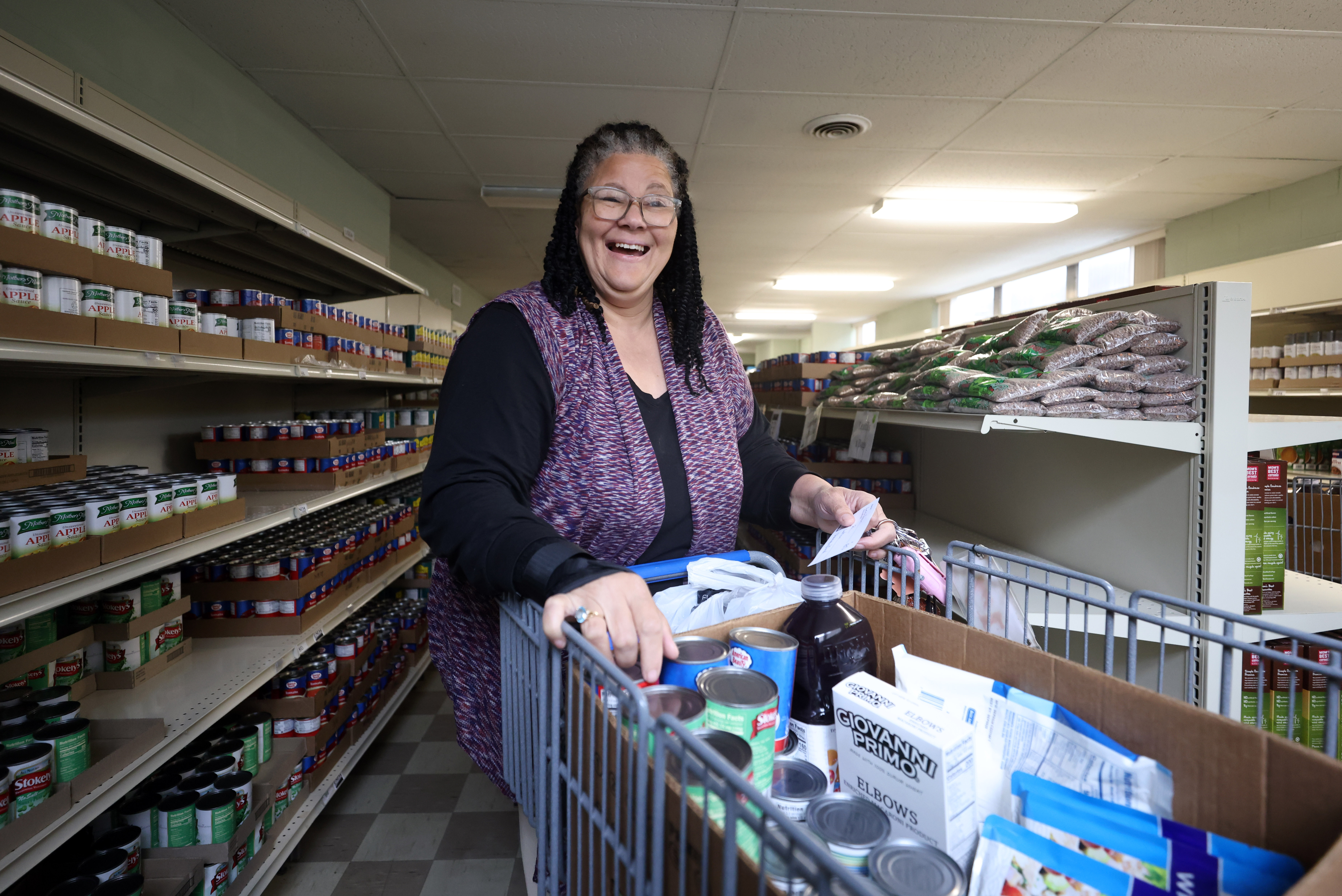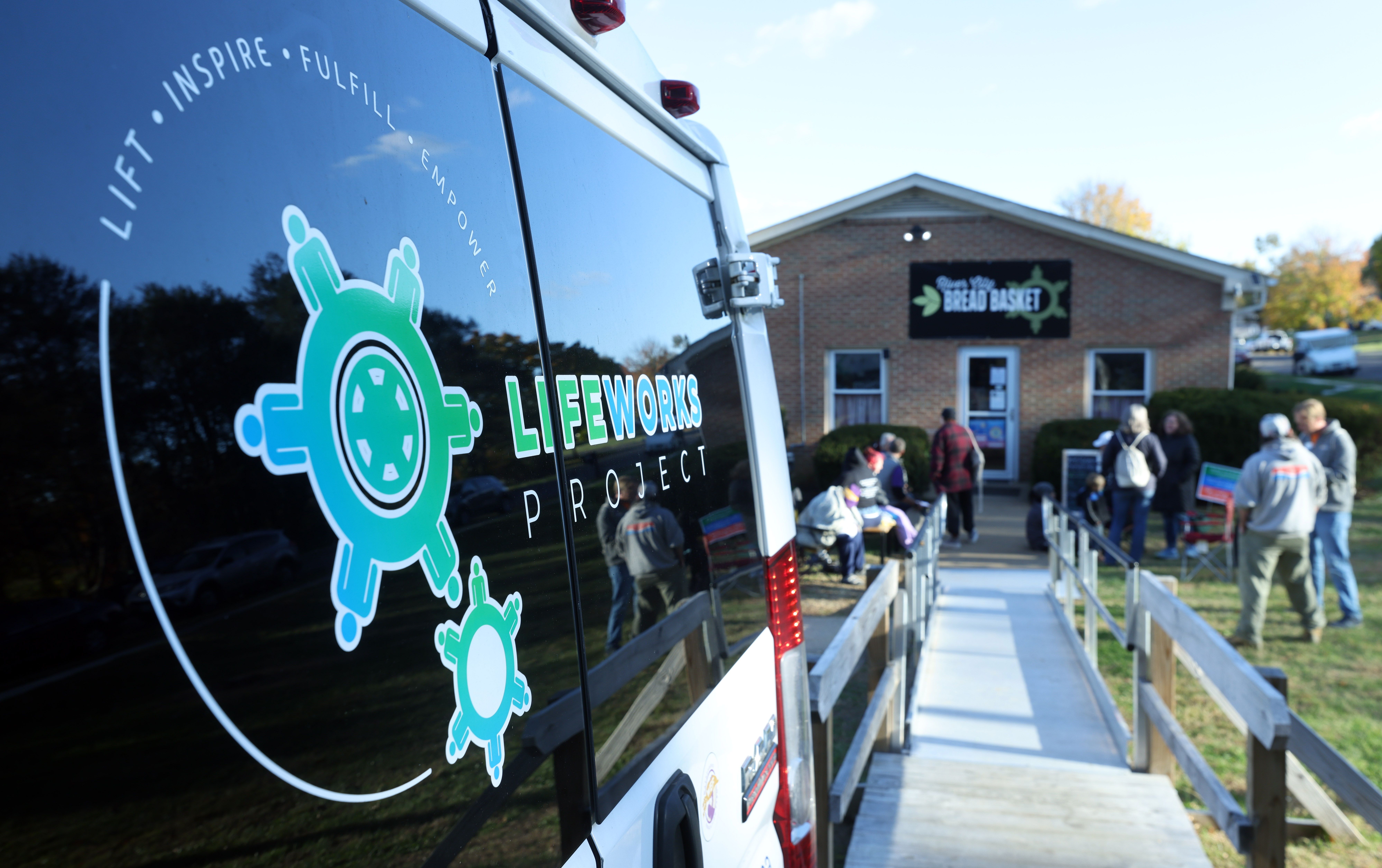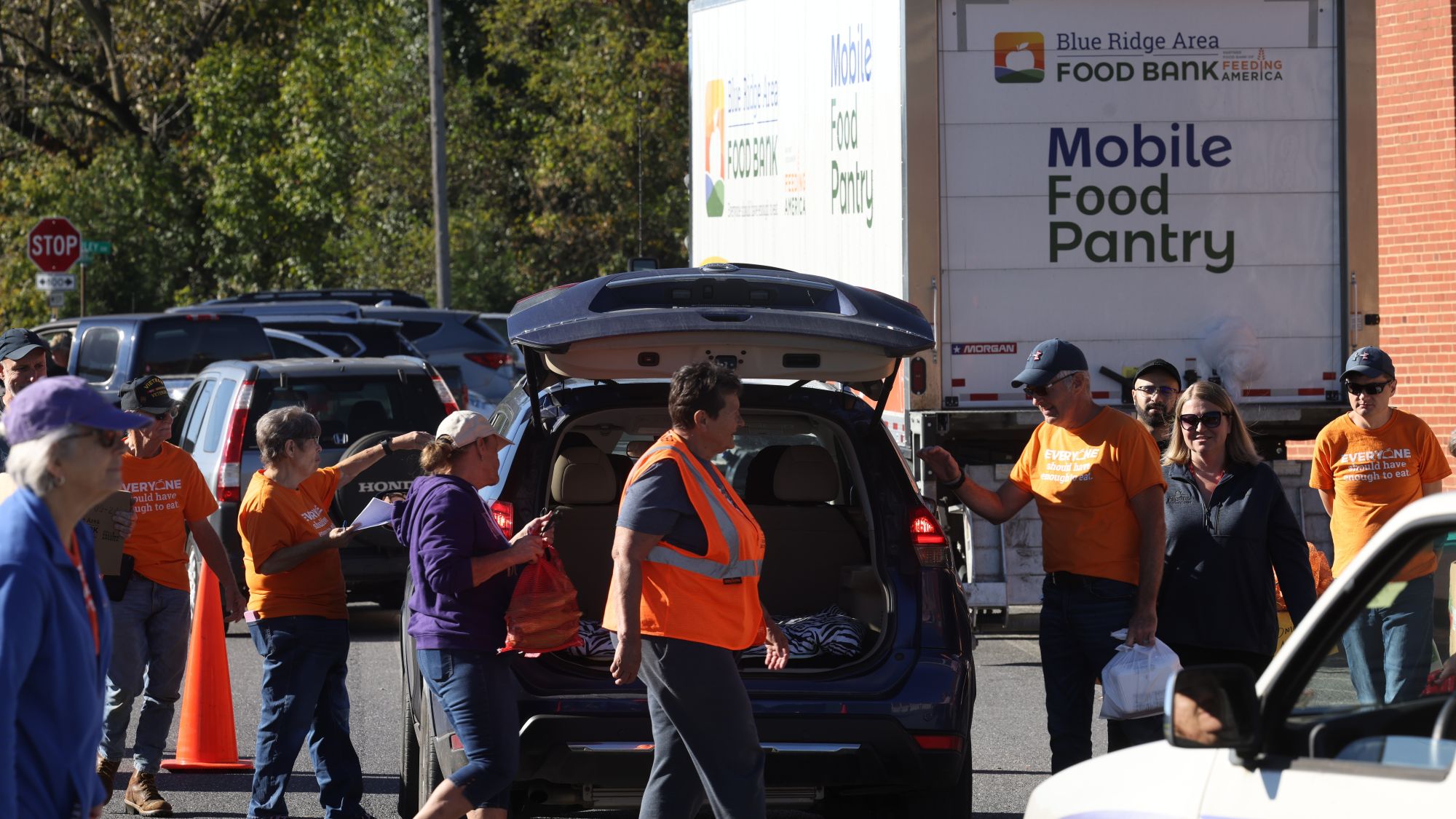The following summarizes material presented in a virtual CEO Forum on April 30, 2025. You can watch the recording here.
Recently, I had the pleasure of meeting with many of the Food Bank’s partners and supporters in a virtual forum, entitled “In our Neighbors’ Words: Understanding the Rising Need for Food Assistance While Inspiring Action.” It’s always wonderful to connect with individuals who share our commitment to providing nourishing food and supporting good health for all.
‘Food banks are built for hard times’
The Food Bank is serving the highest numbers of neighbors ever in our 44-year history. And that’s not good news.
We’ll likely close this fiscal year (ending June 30) with more food distributed to more people than in any prior year. Currently, we’re reaching an unprecedented 172,000 people on average each month.
And as the need for food assistance rises, we can no longer count on the government to provide millions of pounds of much needed food.
My message is also one of resolve. Food banks are built for hard times, and we will weather this storm. When resilience is needed, our guests, partners, donors, and volunteers provide us with the motivation we need to face whatever challenge is next.

Guests tell their stories
We often hear powerful testimonies from individuals who share their reasons for turning to food pantries and the profound impact this support has on their lives. Their first-hand accounts underscore the immense importance of our collective efforts.
Our guests often tell us that they don’t have the means to buy the groceries they need or want, because there’s not enough money left in the budget. Too often our guests are faced with an impossible choice; put food on the table, or pay the bills.
Thanks to our pantry and program partners, we help in making sure these guests have dinner on the table at the end of the day.
Make no mistake: we are solving hunger every day.
What is driving the demand?
We find ourselves in the midst of what’s been called the perfect storm.
On the one hand, we are seeing a huge spike in demand for our services. During similar episodes in the past, we knew that the line of people at food pantries got longer when unemployment rates were high. Conversely, lines would get shorter when unemployment rates would drop.
That is no longer the case; rates of food insecurity have become decoupled from rates of unemployment.
For many families, including working households, the cost of living is simply far too high. The average cost of daycare for an infant in Virginia is $14,000, annually. The cost of groceries is expected to increase another 3.6 percent this calendar year, and housing prices are soaring. If you factor in healthcare costs, utility bills, and insurance, budgeting can become difficult for anybody. And it is especially difficult for seniors on a fixed income and single parents.
Food sourcing challenges
Compounding the urgency, we realize we cannot count on the government as a reliable partner for food assistance right now. Recent policy decisions have restricted our access to nearly 400,000 pounds of USDA food allocated for our warehouses.
And we are expecting a decline of 1.5 million pounds of food from federal resources next fiscal year (compared to this year). To replace that much food could cost us upwards of $1.3 million. We can, for the short term, absorb that cost.
But we also know that many smaller food pantries that rely on government assistance don’t have that luxury. So, we will offer some of our purchased food to them for free. That means additional strains on our budget.
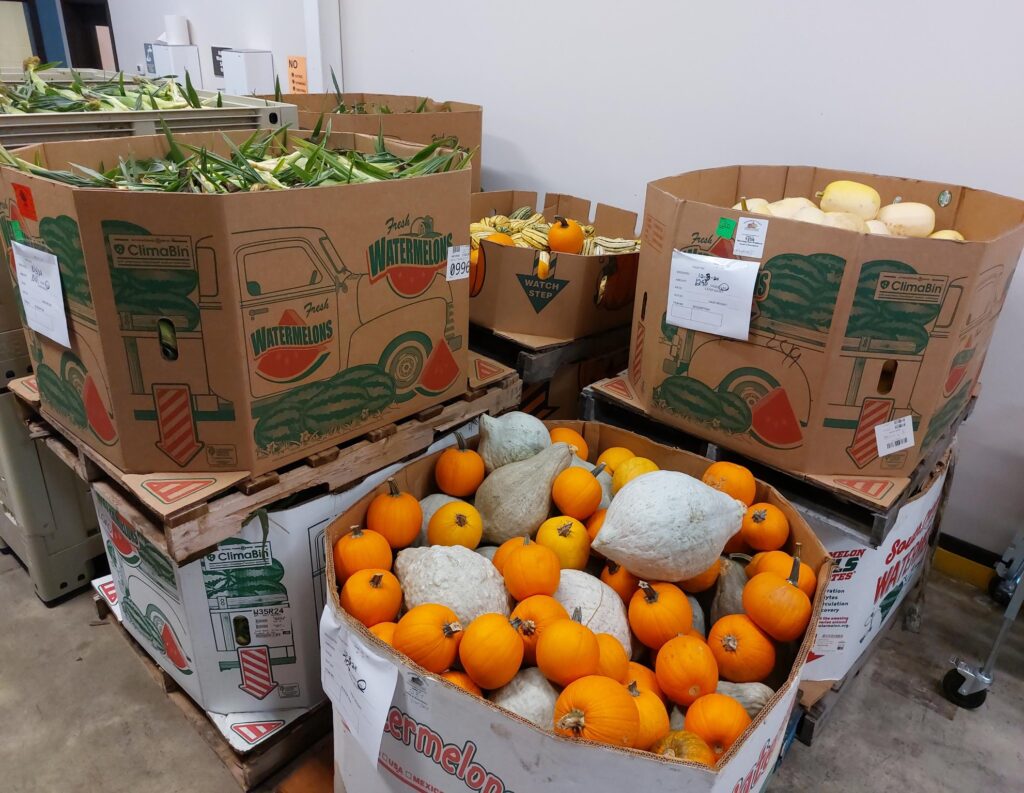
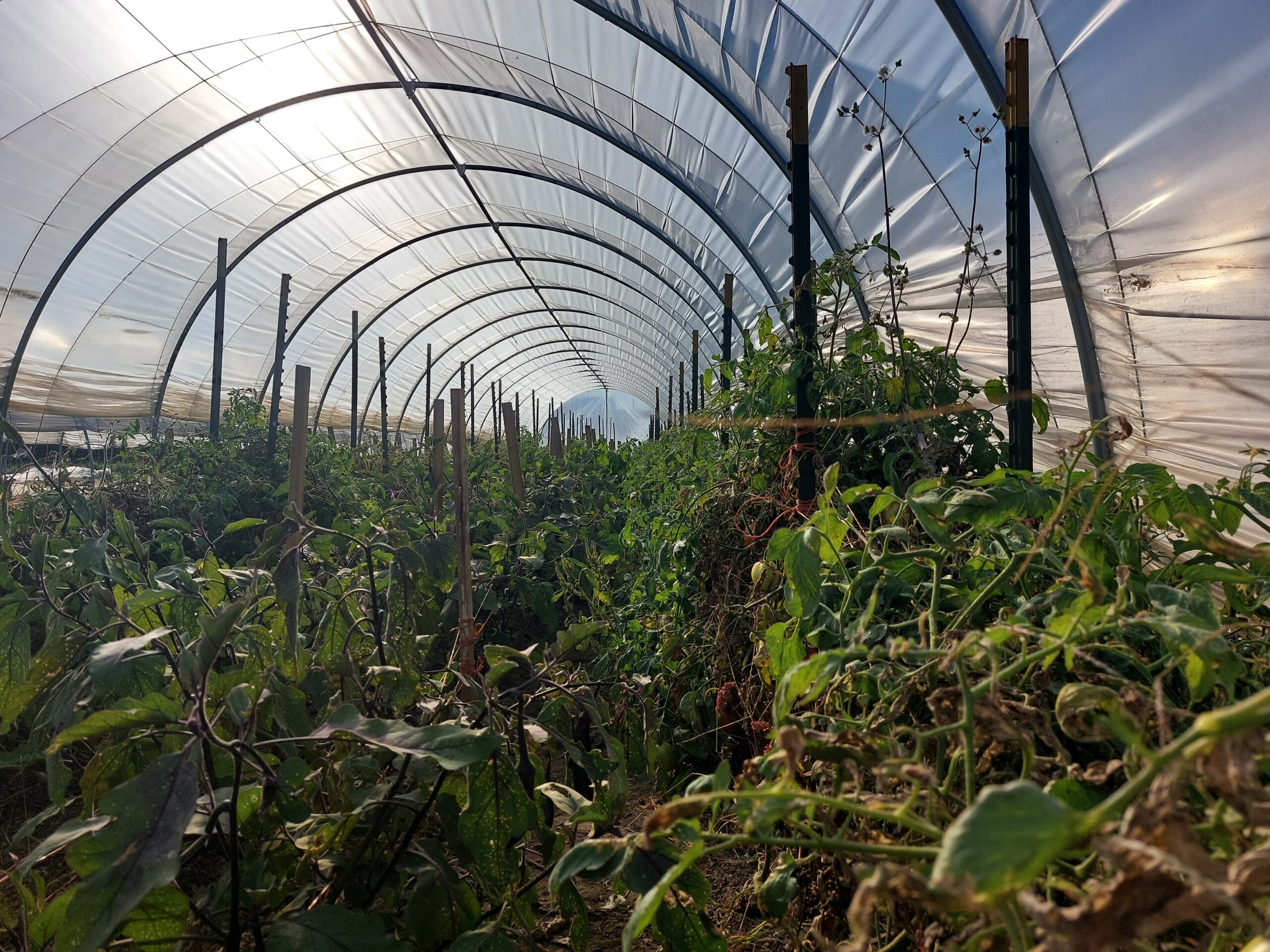
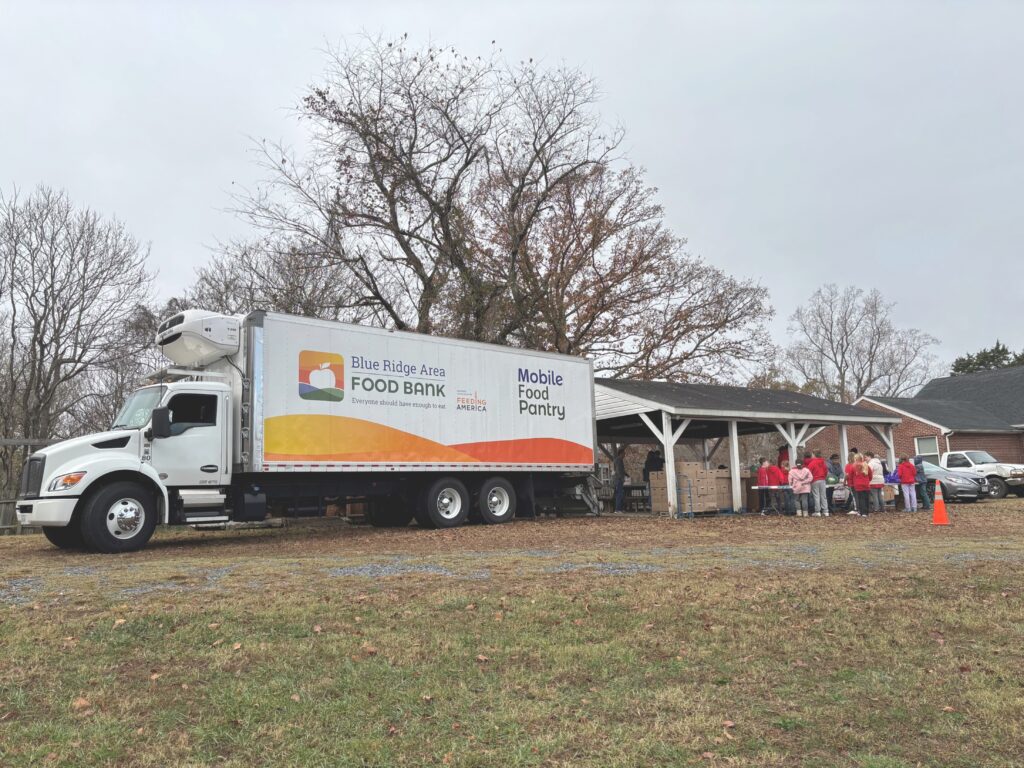
Additional realities
The Blue Ridge Area Food Bank, I’m proud to say, has always been great at looking at future trends and how they might impact our collective work. I see two additional realities we need to be aware of.
I am convinced that artificial intelligence (AI) will be increasingly disruptive to our labor markets, potentially causing mass layoffs and turning more people toward food assistance networks. And there’s also good evidence to suggest that climate change will impact where our food comes from, its availability, and its cost.
But wait! There’s good news to share
We’ve learned during these turbulent times that our current 5-year strategic plan is the right plan to transform the lives of our neighbors and improve our communities.
For example, we recently welcomed new food pantry partners to our network in the city of Harrisonburg, giving us the opportunity to serve more guests. That’s also the case in Shenandoah County, where we launched a new Good Food School Market, directly connecting students with food resources on campus.
And we’ve also made great strides in health care settings, because we know that food is medicine. Since 2020, we have launched 27 food pharmacy sites, where we offer medically tailored groceries distributed at the point of health care. And that number will certainly grow in the coming years.
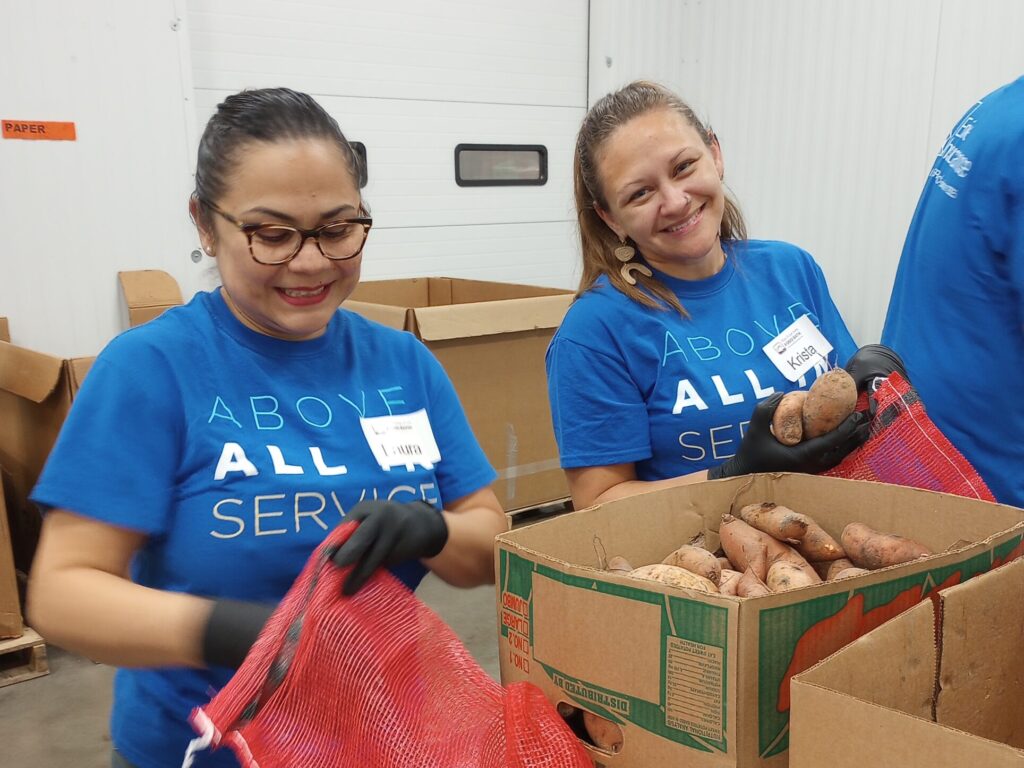
What can you do?
This upcoming fall is going to be an important time for everyone who cares about food banking.
Lawmakers in Washington will vote on the reauthorization of the farm bill. That is the piece of legislation that funds many federal food assistance programs for five years, such as The Emergency Food Assistance Program (TEFAP) and the Supplemental Nutrition Assistance Program (SNAP). You can help us advocate for a strong and robust farm bill that protects these vital programs, helping our neighbors, farmers, and our local economy.
If you are ready to join us in that cause, we invite you to learn more, and urge Congress to vote for a strong farm bill: www.brafb.org/advocate
Thank you – you are making a difference
I mentioned earlier that food banks are built for hard times. I don’t take for granted, not even for a second, that bouncing back from hard times is a given, because I know it’s not. We have been able to serve our neighbors without judgment for 44 years, because of you. If you are a volunteer, thank you. If you are a partner, thank you. If you are a donor, thank you.
What you do lifts us up every day.
While the challenges ahead are immense and the need is greater than ever, please know that your support is vital. It is life-sustaining.
We are carrying an unprecedented weight, and I’m honored to stand alongside you so we can carry it together.
 Chew On This
Chew On This
